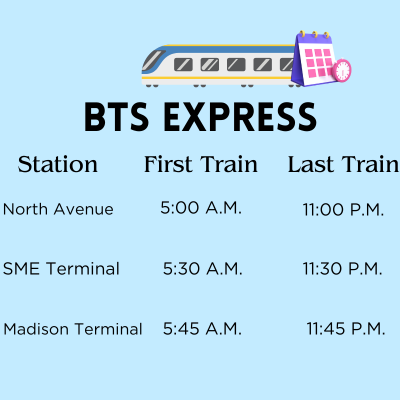PART A_1
Let’s learn new vocabulary. Listen and repeat these words with your tutor.
単語を学習しましょう。講師のあとについて音読してみましょう。
PART A_2
| 1. declaration form 申告用紙 | |
| Please show me your declaration form first. | |
| 2. declare 申告する、宣言する | |
| I have no items to declare, thank you. | |
| 3. allowance 手当 | |
| All items I have are within normal allowance. | |
| 4. belongings 所有物 | |
| I only have my personal belongings in this luggage. | |
| 5. baggage inspection 手荷物検査 | |
| You may now proceed to the scanning station for baggage inspection. | |
PART B_1
Let’s learn today’s phrases. Read the sentences below.
会話表現を学びましょう。以下の文章を音読してみましょう。
PART B_2
I have nothing to declare.
申告品はありません。
I have a bottle of whiskey.
私はウイスキーをひと瓶持っています。
PART C_1
Let’s read the dialogue. After that, we’ll switch roles.
以下の会話文を読みましょう。終わったら交代してもう一度読みましょう。
PART C_2
|
Customs officer:
Good day, and welcome to California. May I have your declaration form?
|
|
Alex:
Of course. Here you go.
|
|
Customs officer:
Do you have anything to declare?
|
|
Alex:
I have nothing to declare. Everything is within normal allowance.
|
|
Customs officer:
May I know what you have in this luggage?
|
|
Alex:
My personal belongings. I also have a bottle of whiskey inside.
|
|
Customs officer:
Thank you. Do you carry anything else aside from these?
|
|
Alex:
No, these are all I have.
|
|
Customs officer:
Understood. You may now proceed to baggage inspection. Thank you for your cooperation and enjoy your stay!
|
|
Alex:
I definitely will, thank you!
|
PART D_1
Let’s read the dialogue. Read aloud, filling in the blanks as you remember the sentence you just read.
以下の会話文を読みましょう。先ほど読んだ文を思い出しながら、空欄を埋めて音読しましょう。
PART D_2
|
Customs officer:
Good day, and welcome to California. May I have your _______________ ?
|
|
Alex:
Of course. Here you go.
|
|
Customs officer:
Do you have anything to _______________ ?
|
|
Alex:
I have nothing to declare. Everything is within normal _______________ .
|
|
Customs officer:
May I know what you have in this luggage?
|
|
Alex:
My personal _______________. I also have a bottle of whiskey inside.
|
|
Customs officer:
Thank you. Do you carry anything else aside from these?
|
|
Alex:
No, these are all I have.
|
|
Customs officer:
Understood. You may now proceed to _______________ . Thank you for your cooperation and enjoy your stay!
|
|
Alex:
I definitely will, thank you!
|
PART E_1
Let’s read the dialogue. Read aloud, filling in the blanks with the vocabulary and expressions you learned.
以下の会話文を、習った表現や単語を使って穴を埋めながら読みましょう。
PART E_2
|
Customs officer:
Good day, and welcome to Tokyo. Your _______________ , please.
|
|
Olivia:
Here you go.
|
|
Customs officer:
Do you have anything to _______________ ?
|
|
Olivia:
I bought Duty Free items at the airport. Here’s the receipt.
|
|
Customs officer:
Okay. Anything else aside from those?
|
|
Olivia:
Just these and my personal _______________ in this backpack.
|
|
Customs officer:
Thank you. Please proceed to the exam station for the _______________ .
|
|
Olivia:
All right, thank you!
|
PART F_1
Let’s do a roleplay. Talk with me according to the situation below, using the expressions you just learned.
ロールプレイをしましょう。以下のシチュエーションに沿って、講師と話をしましょう。この時、今日習った表現を使ってみましょう。
PART F_2
You safely arrived at your destination and you are on your way to customs. Please hand over your declaration form to your tutor, who will pretend to be a customs officer, and inform him/her that you have no items to declare.
あなたは無事に目的地に到着し、税関に向かっています。税関職員に扮した講師に申告書を渡して、申告するものがないことを伝えてください。
PART F_3
PART F_4
You are at customs at your travel destination. Please hand over your declaration form to your tutor, who will pretend to be a customs officer, and inform him/her that you have items bought from a duty-free store in the airport to declare.
あなたは旅行先の税関にいます。税関職員に扮する講師に申告書を渡し、空港内の免税店で購入したものを申告する旨を伝えてください。
PART F_5
PART G_1
Let’s review today’s phrases with your tutor. Read the sentences below.
今日習った会話表現を復習しましょう。下記の文章を読み上げてください。
PART G_2
I have nothing to declare.
申告品はありません。
I have a bottle of whiskey.
私はウイスキーをひと瓶持っています。
REVIEW AND FEEDBACK
Now, let us review the things that you learned in this lesson.
ではこのレッスンで学んだことを振り返りましょう。
(Please give a short feedback on how your student did on your class.)
| Grammar 文法 |
Pronunciation 発音 | Vocabulary 単語 |
Comprehension 理解 |
|
|---|---|---|---|---|
 GOOD GOOD |
文法の誤りはほとんどなく、完全な文章で話すことができる | ほとんどの単語をはっきりと正しく発音することができる | 習った表現を適切に使うことができる | 文章を理解し、質問に正しく答えることができる |
 FAIR |
文法の誤りはあるが、完全な文章で話すことができる | 発音の練習が必要な言葉がいくつかある | たまにミスはあるが、習った表現を適切に使うことができる | 文章を完全に理解するのは難しく、質問に正しく答えられないときもある |
 POOR |
文章で話すのは難しく、単語だけで話すことができる | 発音の練習が必要である | 習った単語と表現を少しだけ使うことができる | 文章を理解するのは難しく、質問に答えるのは難しい |







